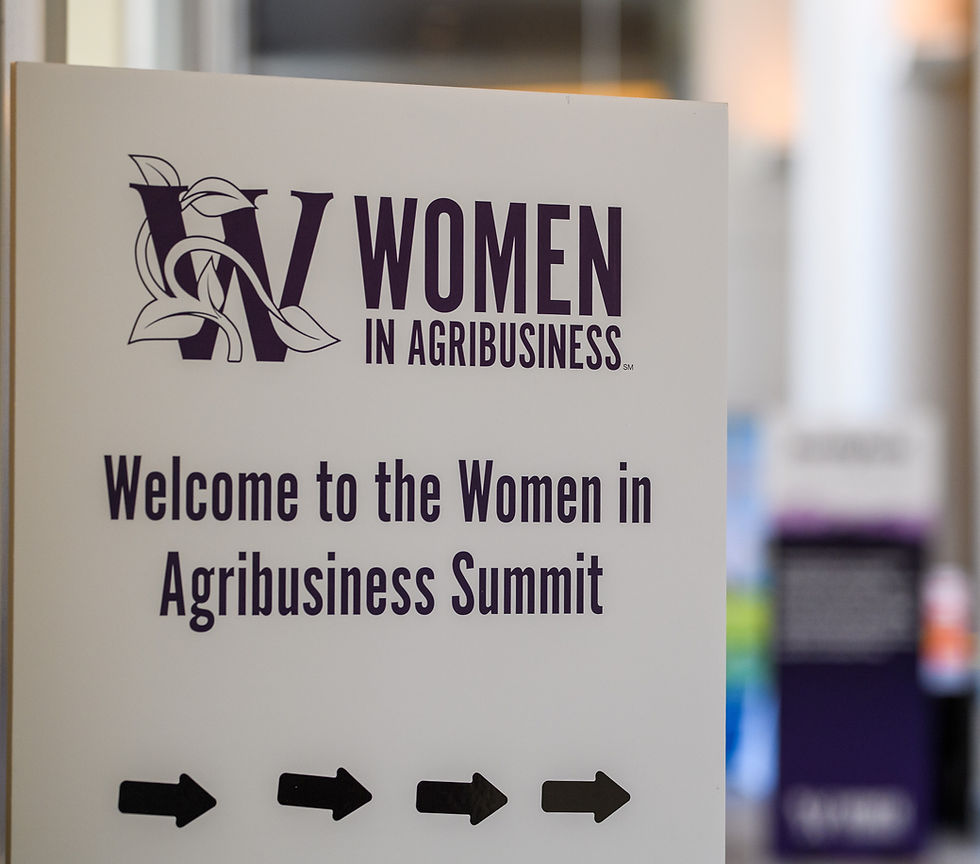Using Innovative Technology to Reduce Nitrogen Use
- Michelle Marshall

- Feb 23, 2021
- 3 min read
Updated: Apr 8, 2021
By Michelle Yoshinaka, VP Corporate Marketing & Communications, Sound Agriculture
Photos courtesy of Sound Agriculture (February 23, 2021)
Nitrogen’s Role in Plant Growth
Nitrogen is the most essential nutrient for plant growth. It is a major component of chlorophyll and protein-building amino acids that are essential for plant health. Because so little nitrogen is available in a form that plants can use, growers apply nitrogen each season to ensure their fields are productive. Despite being vital for modern growers, nitrogen is also a major expense, and excess nitrogen that escapes into groundwater, surface water, and the atmosphere can be incredibly harmful to the environment.

Applying excess nitrogen is common because there are many factors that contribute to nitrogen uptake, some of which are outside of a grower’s control. These include weather, temperature, and timing. Because determining nitrogen needs is complicated and unpredictable, up to 30 to 50 percent of applied nitrogen fertilizer goes unused by the plant. The remaining fertilizer can pollute waterways, degrade soil health, and contribute to climate change by releasing nitrous oxide (N2O) into the atmosphere. Nitrous oxide is extremely dangerous to the planet, having 300 times the heat-trapping effect of carbon dioxide (CO2).
For millennia, plants’ ability to feed themselves relied heavily on tiny, nitrogen-fixing microbes and phosphate-solubilizing bacteria living in the soil and the roots of some plants. These microbes send signals that turn nitrogen and phosphorus into forms that plants can use. However, changes in soil health and weather, along with increased yield demands, have left this natural process falling short of the needs of today’s grower.
Unleashing the Power Within the Soil

Scientists are just beginning to understand more about the complex relationship between plants and the soil microbiome, and the role of plant-to-microbe signaling is of particular interest. Sound Agriculture, a sustainable agtech company, is dedicated to this issue and others that will provide growers with new tools that allow them to maintain profitability while minimizing environmental impact.
The company’s first product, SOURCE™, mimics the signals that are sent by nitrogen-fixing microbes and phosphate solubilizing bacteria to improve nutrient efficiency. The product provides in-season nitrogen and phosphorus to the plant when it is most needed to support healthy growth, tapping into naturally available resources, rather than relying heavily on applied synthetic fertilizers.
Years of trials show that using SOURCE provides the equivalent of 25-50 lbs. of nitrogen per acre.* This means that growers can start to pull back on nitrogen application and maintain yield – a win-win for growers and the planet.

Last year, in an effort to scale use and positive environmental impact, Sound Agriculture formed a strategic partnership with Syngenta to target decreased nitrogen fertilizer use in China, one of the leading agriculture nations. The goal is to use SOURCE to cut nitrogen usage by up to 30 percent while maintaining on-farm productivity. The collaboration has the potential to reduce nitrogen application by 7.5 million metric tons annually in China alone.1 This is the equivalent of removing 220 million tons of CO2,2 or 50 million cars from the road each year.3
As Sound Agriculture and other dedicate efforts to tackling the issues we are facing due to decades of practices that are now being revealed as harmful to the planet, it is critical to make sure the solutions support the grower. Maintaining production, ease of use, and positive return on investment are all necessary if these solutions are going to take hold and make an impactful difference. SOURCE checks all the boxes and has the potential to create positive and lasting change.
*Trials conducted over four years on corn in the U.S.
ABOUT THE AUTHOR

Michelle Yoshinaka has focused her career on marketing communications in food and agriculture. She has built and implemented successful strategies for Fortune 500 global food companies and their brands, commodity boards, ingredient companies, restaurants, and NGOs. Currently, as head of corporate marketing and communications at Sound Agriculture, she builds awareness, establishes thought leadership, and drives lead generation activities for the company and its products. Prior to Sound, Yoshinaka was a vice president in the consumer food group at Ketchum, where she led communications for the NestléIce Cream division and played a key role in the successful revival of the Haagen-Dazs sustainability efforts. Prior, she supported B2B and B2C clients at FoodMinds, creating multifaceted programs that harnessed food, nutrition science, policy, and consumer insights. She is dedicated to supporting efforts that enhance environmental sustainability and a safe and healthy food system. Yoshinaka earned a bachelor’s degree in journalism from Indiana University.








